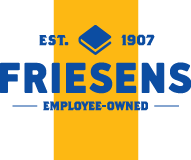October 21, 2019
Interviewing

Without writing, your yearbook is basically a photo album. This isn’t necessarily a bad thing. Pictures are worth a thousand words as the saying goes. They will, without a doubt, be the first thing that students look at when they receive their books; but to really capture the history of the year you need information. Details to support your photos. One of the best ways to get material for your stories and captions is to interview people.
So, what do you need in order to interview people? Overall, you need to be prepared. Know the end goal for the material that is being collected. Are you getting individual quotes, bite-sized facts for captions or are you gathering information for an article? Who are you interviewing and what information are you hoping to get from them? Knowing this will provide you with guidance on the questions you ask and make the most of your interview time.
Interviews can take place, face to face at the time of the event or at a later date, over the phone and with the advances in digital media, you can FaceTime or use direct messaging on your smartphone.
When you are conducting the interview, you can’t rely on your memory to recall all the information you are gathering. Bring a notebook, and write it down as you go. Use a pencil, it works in the rain. Take good notes, pay particular attention to record concrete numbers, dates, statistics, keywords and direct quotations. Be sure to record the details of your surroundings including what you are seeing, hearing, feeling, tasting and touching at the time of the interview. Details make the difference.
Before asking your questions, open with an ice breaker. This will help make the transition to the questions you really want to ask. Start with factual questions. Who, what, when, where, why and how? Some of these questions are answered when you are doing your preparations for the interview. Follow with a survey question. “What are the popular songs this year?”, “What are the students wearing?”, etc. These should be fun, easy questions. Once your subject is comfortable, you can ask questions that are more personal in nature that will provoke detailed responses that are full of personality. These anecdotes may be long-winded but take all the information you can get; they can always be edited later. Be sensitive if you are talking about a sensitive or emotional issue. Finally, try and get some direct quotes. Quotes are short bites that capture moments. They add human emotion and truth. Whatever you do, avoid questions that can be answered with a yes or no. Ask open-ended questions. One-word responses will lack the personality needed to make the yearbook come to life
Remember that during an interview you are responsible for gathering correct information that will be turned into the written word that gives your yearbook context and makes all those pictures more significant.







